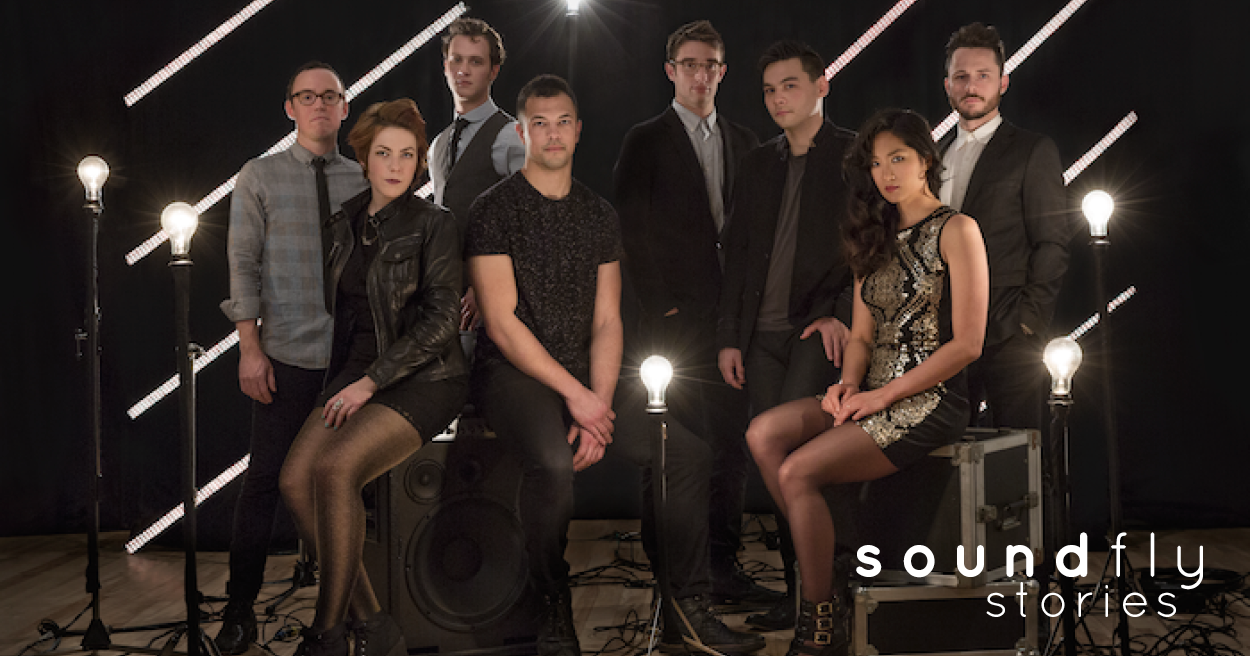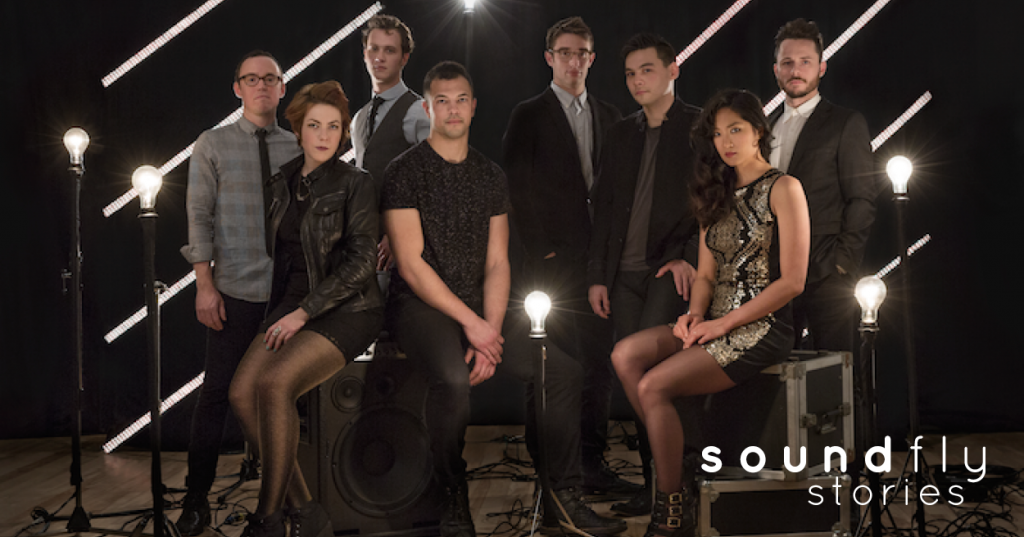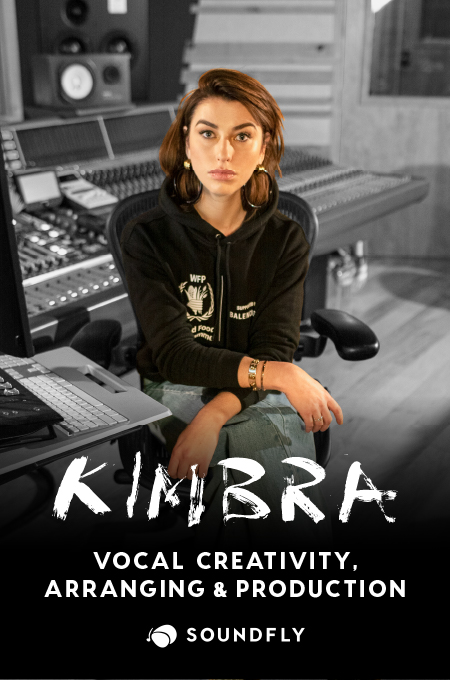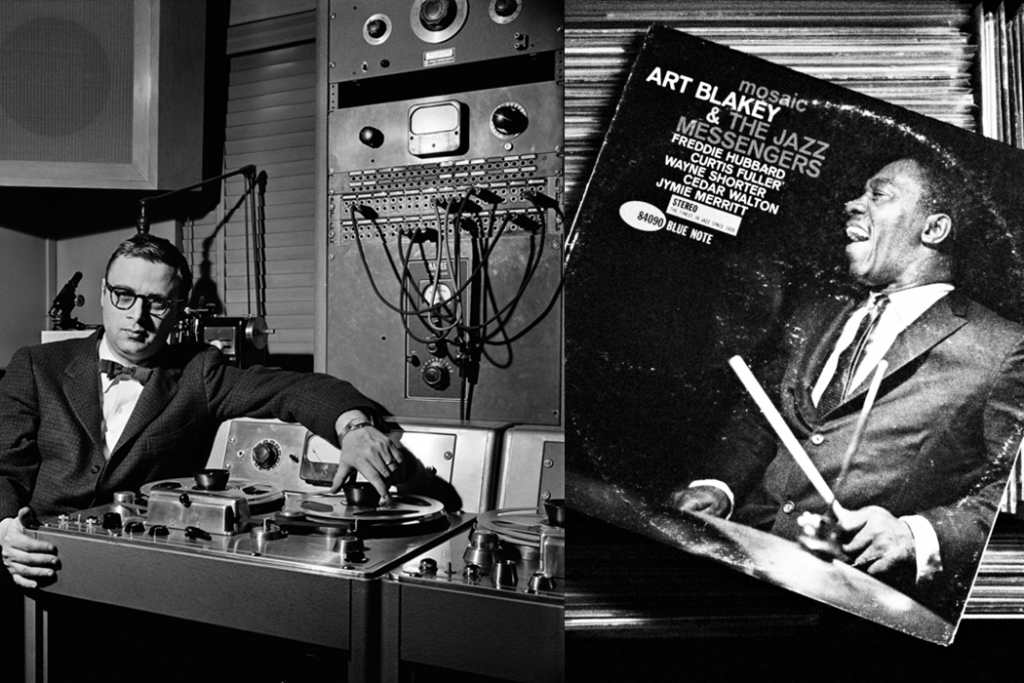
Allen Tate is best known for his distinctively baritone serenades as one of the lead vocalists for San Fermin. Their self-titled first album was released in 2013 to rave reviews. It is an operatic musical journey of serious proportions, not least because of the full complement of orchestral instruments they employ, but also the male and female vocal lines that trade prominence throughout. Their second album is set to be released next month, with two album release shows at the Music Hall of Williamsburg on April 23rd and 24th.
I met Allen recently at a comedy show in Brooklyn and we realized we had a mutual friend, San Fermin’s saxophonist Stephen Chen, also of Great Caesar. I asked if I could put a few questions his way, and we ended up talking about the unexpected nature of his career in music, the accident that led to his signature deep voice, and that time Stephen almost died from rocking out too hard.
How did you get started playing in San Fermin?
I’ve known Ellis [Ellis Ludwig-Leone, the lead songwriter for San Fermin] for a long time. When he was leaving Yale and I was still at NYU, he said offhandedly he was going to write music for a new project, and he wanted to do this weird thing where I’d sing on it.
At the time, music was a passion of mine, but it wasn’t something I was taking seriously. I’m by far the least trained member of the band. Rebekah went to Juilliard. John has two master’s degrees in trumpet performance. Compared to that, I had next to nothing. I was kind of thinking “oh man, I hope I play in an old man band one day and stay around music.” I was pretty sure I was going to go to law school.
But Ellis would send me stuff when he was away at Banff writing our first album, and ask what I thought about it, and we’d go back and forth. And as we did that, it certainly seemed more promising than I had anticipated. We stuck together to play one show at Piano’s… Since then, this has been a new surprise every day for me, and I mean that in a variety of ways.
How did you find your sound? Was there a specific moment that stands out to you?
It was certainly trial and error. When you learn an instrument, especially if you started as a singer-songwriter, you end up sounding a lot like what you’re listening to or what’s popular then. You’ve also gotta be playing what girls like, so there’s definitely an extended period of time where I did my best John Mayer and Jack Johnson impression, like everyone else with an acoustic guitar. That didn’t work for me for a number of reasons.
Before Ellis went away and wrote our first record, I had shown him a song I had written. I was going to play it in a higher register — I usually use a capo — but I couldn’t find the capo while he was at my apartment so instead, I just played it lower and sang it lower. It was the first time that I’d really sang in a lower register.
I can sing really low and pretty high in falsetto, but I have a weird hole around middle C that is just a nightmare. I hate singing church music, and christmas carols just make me nauseous because there’s no comfortable place to sing. In any case, I sang that song lower and I guess it seemed like a new possibility for both of us. A lot of what he wrote for me on our first record was in this new register.
That, and all the time on the road we had, I’ve definitely become more comfortable with my own voice. 200 San Fermin shows later.
What’s the most powerful musical moment you can remember?
One of the moments that sticks out to me is: I grew up outside of Philly and so the Roots were like gods. They still are. If I ever meet ?uestlove, I will probably pass out, and it’ll be really embarrassing. They play the Roots Picnic every summer, and at least in the first few years, they played the slot one before the headliner.
I won’t name the headliner, but the Roots came out and played for like an hour and half, and they played so hard and had the crowd going so hard, that when they got off, the headliner came on and the crowd was just dead. It was like no more music could be played there. They killed the stage. I’d never experienced anything like that. And this was a big headliner, they headlined the whole festival, this was who people came to see, and you know they got up there and felt the weird energy. They played their first two songs, and I think cut out a bunch of other ones, played another three of their major hits, and left before it had even been an hour. It was a really strange experience. That show will always stick out to me as the time the Roots played so hard that the next band couldn’t even come on.
Music’s a funny thing where it’s not directly competitive like a sport. But sometimes when we go on stage, especially at festivals where you get to play with bigger bands and want to see where you fit in, I’m always thinking that I want to play so hard that the next band doesn’t want to come on. That’s what sticks with me from that Roots show. I’ll always remember that.
What’s your favorite moment on stage, personally?
The fun thing about our show is that the load is really even in terms of who’s playing, so I’m not always on the mic singing, which is great. In the spare time I really like to troll my bandmates, which I think they like. Stephen, our sax player, plays with his eyes closed a lot, which is great because I can get really close to him before he realizes that I’m there. He and I have a really good dynamic on stage.
We played a show in Vancouver on a carpeted stage, and Stephen was really going for it on sax. He actually rocked into it so much and swung his head down with his saxophone so hard that his feet slipped out from under him, and he basically spiked his own face into the ground. If he hadn’t gotten the reed out of the way, it probably would have gone through the back of his skull, and been like a Final Destination death. It would have been awful.
So he basically dribbled himself. We couldn’t even keep it together on stage. That’s one of my favorite moments. They’re usually moments like that when something almost went horribly wrong.
Any tips for people who might want to give up their bartending job and do music full-time?
Hang onto the bartending job as long as you can! [Laughs.] Even if music is mostly full-time, it’s usually not without supplemental income from one place or another. I’d say most musicians, if they are really musicians, are getting along by the skin of their teeth.
The most important thing is to find some other side gig or outlet where people understand it. What’s hardest for people is when they have a day job that they need to go back to and their boss just doesn’t care or understand what it’s like to be a musician.
The best side job I’ve come across is from the band Diarrhea Planet. They’re really great guys from Nashville. We went down and played there, and a couple guys from that band were our loaders that day and helped out with set up. When I saw that, I thought that’s probably the ideal gig. They get to see bands come through, they have great hours, they’re learning more about their equipment and how to set things up, so I’m sure they’re total pros when they’re out there on their own.
What are the obstacles you’re facing right now?
We’re such a new band that none of us had really ever toured before. We basically put that first record out in September 2013 and went immediately out on tour and pretty much toured until November of last year. When we stopped, it’s been a weird transition to know what you do in the down time. We recorded the new record in a really tight break, actually earlier while we were pretty much still touring, so it wasn’t like we sat down to record.
One of the cool things about the band is because Ellis writes all the music, it’s a good outlet for us all to get to play stuff that’s not ours, so there’s not the same emotional hangups that you have about your own songs that can sometimes ruin you. When we have off-time a lot of other people in the band are working on their own thing. Stephen plays with Great Caesar. Mike our drummer wrote and recorded a record, and Charlene’s working on stuff, I’m writing stuff. That’s a good thing, but it’s been hard to make that transition. Once you really know the rhythm of tour, not being in the same place for more than 24 hours, having people to tell you when soundcheck is, etc., it’s a very different rhythm from just being home.
Do you have advice for touring musicians?
Make friends who have big couches. Even that first tour that we did in September, I’d say 85% of the time we were staying with friends or on couches. Also, really thank people and do what you can to repay them. That’s what you’re exchanging early on, relying on people who are willing to help you out and people willing to tell their friends about your music.
But no, early tours are a near death experience.
What has been your lowest point as a musician so far?
I think it was probably when I had that early excitement about being a musician, but at a certain point it seemed really impractical. Even more so because I wasn’t studying music. There was a point toward the end of college where my music was winding down. Ellis was doing a lot of classical stuff, he was working with Nico Muhly and that was a really smart path for him. It felt like: “oh man, I guess music is about to become a much less significant part of my life, I’ll go to law school, etc.” That definitely felt like a real low point for me.
Once Ellis started showing me his music, it seemed like one more thing to get excited about. Everything that’s happened since then is that much more important to me, because there was that moment when this thing I really loved and cared about and have obsessed over since I can remember, even singing along to things in the car as a kid, or playing in poorly attended college parties, those are about to be gone.
I think that low point comes with higher stakes and bigger loss. If you really love and care about music, if it feels like it’s not going to happen anymore, whatever that means, that’s really tough.
What do you wish you’d known when you first started playing music?
I wish I’d known that it takes so much time. Not that that would have scared me away but so I could tell myself, when you’re not there yet, it’s OK, it just takes more time.
There were two huge bands we played with last year. We played with the Arctic Monkeys — Alex Turner, that guy’s been wildly famous since he was 16 years old. And we played a huge show with The National. Those guys have been a band for the better part of 20 years and have only been recognized in the way they deserve relatively recently considering that span of time. It all takes time. And I can guarantee you that if you had asked Alex Turner what if felt like when he was 16, he’d say it still felt like that was taking forever.
The thing I wish I’d known is that patience is always your friend.
Keep up to date with the latest from San Fermin on their site, Facebook, Twitter, and Instagram. Allen Tate is on Twitter @avtate. And if you’re in New York, be sure to check out their album release parties at the Music Hall of Williamsburg on April 23rd and 24th.


